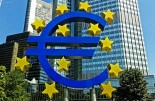Monex: Verwacht geen beleidsaanpassingen, maar let op hints voor volgende ECB-bijeenkomst in december
Monex: Verwacht geen beleidsaanpassingen, maar let op hints voor volgende ECB-bijeenkomst in december

Hieronder volgt een vooruitblik van Ima Sammani, valuta-analist bij Monex Europe, op de ECB-beleidsvergadering die donderdag plaatsvindt.
The current global and Eurozone outlook holds many uncertainties – the resurgence in virus cases disrupts euro area outlooks, the US elections are around the corner and Brexit talks are still ongoing. The ECB may want to get some of these uncertainties out of the way before announcing new policies on Thursday, increasing chances that the December meeting will include changes in monetary policy. For now, however, the communication from the ECB will be monitored closely for any hints on the next meeting.
During its September meeting, the central bank upwardly revised its inflation outlook for 2021, sending a somewhat optimistic message to markets. The Pandemic Emergency Purchasing Program (PEPP) was not adjusted – yields in the eurozone were at a record low and the ECB had only used half of its PEPP so far. However, several things have changed since then. Renewed containment measures have been announced in all eurozone countries, and governments have left the option for national curfews open if current virus trends remain unchecked. ECB Policy makers have repeatedly hinted at their willingness to provide more monetary support since the September meeting.
ECB President Christine Lagarde warned in an interview that the central bank’s projections in December will look gloomier if the virus situation worsens. At the same time, the spread between Italy’s 10-year BTP bond and the German Bund, which is a gauge of Italy’s borrowing costs and investor confidence, fell to a 1.5-year low of 121.5 last Tuesday. This suggests markets are reassured by the effectiveness of the PEPP and its flexibilities regarding the issuer limit.
The narrowing sovereign spreads also reflect fading concerns that ECB may reduce its balance sheet causing monetary conditions to tighten and putting pressure on public finance in countries with higher debt levels. This is something the ECB will try to avoid at all costs, and the decreasing BTP-Bund spread indicates that markets are content with the current PEPP. Since the September meeting, the euro also escaped from its highs vs USD despite political uncertainties in the US regarding the presidential elections and the fiscal funding.










